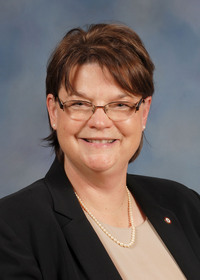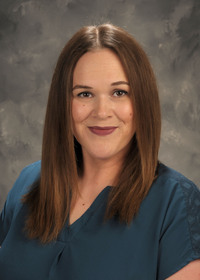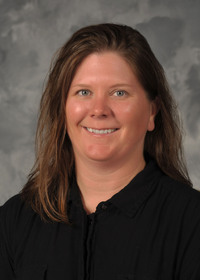Information Possibly Outdated
The information presented on this page was originally released on November 16, 1998. It may not be outdated, but please search our site for more current information. If you plan to quote or reference this information in a publication, please check with the Extension specialist or author before proceeding.
Nutrition Education Reaches Thousands
By Jamie Vickers
MISSISSIPPI STATE - A program started on a shoestring budget to educate 2,000 Mississippi Head Start families in good nutrition has become a national success.
Nutrition $ense was started in 1996 with a $500 Kraft Foods Consumer Center Media Grant. Patty Draper, home economist with Mississippi State University's Extension Service, said a six-person team began with families in Central Mississippi.
"Home economists with the MSU Extension Service became aware of the need for nutrition education for parents and employees involved in the Head Start program in central Mississippi," Draper said.
After receiving the grant, the team of home economists from Choctaw, Clay, Kemper, Lowndes, Noxubee, Oktibbeha, Webster and Winston counties began work on a series of take-home lessons for Head Start families. Each lesson includes educational information, recipes and activities that involve the entire family.
The topics focus on food safety, pricing, snacks, breakfast, labels and the food guide pyramid.
After meeting with the Head Start advisory councils, the Extension team geared nutrition education toward low income and low education parents. The project goals are to enable parents to identify foods that are nutritious, to select foods from the food guide pyramid and to prepare simple, nutritious meals and snacks for preschoolers. To handle the problem of parents not attending meetings, the home economists created a program to reach parents more effectively.
"We decided that a home study course would be the most effective programming," Draper said. "The home economists created a video lesson to introduce the program to the parents. We also sent a monthly newsletter home with the children by making a bracelet of the newsletter, so it would not be lost in a backpack."
With the success of the Nutrition $ense program, Head Start personnel asked the team to develop more take-home lessons for parents.
"There is a need for more parenting and family resource management information, not only nutritional information," Draper said. "All parts of family life should benefit from our topics each month."
Expansion of Nutrition $ense was certain. From the initial $500 grant, the program now has been recognized and is used throughout the state and nation.
"We have expanded to public kindergartens along with Head Start," Draper said. "We also offer the program to some preschools around Lauderdale, Kemper, Neshoba and Noxubee counties.
"Our goal is to have a three-year series of take-home lessons. This covers two years of Head Start and one year of kindergarten with the emphasis changing from knowledge of nutrition to overall knowledge for parents," Draper said.
The program gained national attention at The Cooperative Extension Service Galaxy Conference, where copies of the lessons, publicity and brochures were available. More than 20 states showed interest in the program. Nutrition $ense has expanded from the eight original counties to the nation.
Nutrition $ense won the 1998 Extension 2000 Award. This was the first time the award was given nationally to recognize outstanding Extension programming.
The team also received the 1997 Extension Diversity Award, given by the MSU Extension Service. The Nutrition $ense team also won an award from Epsilon Sigma Phi for outstanding programming conducted by a team.







